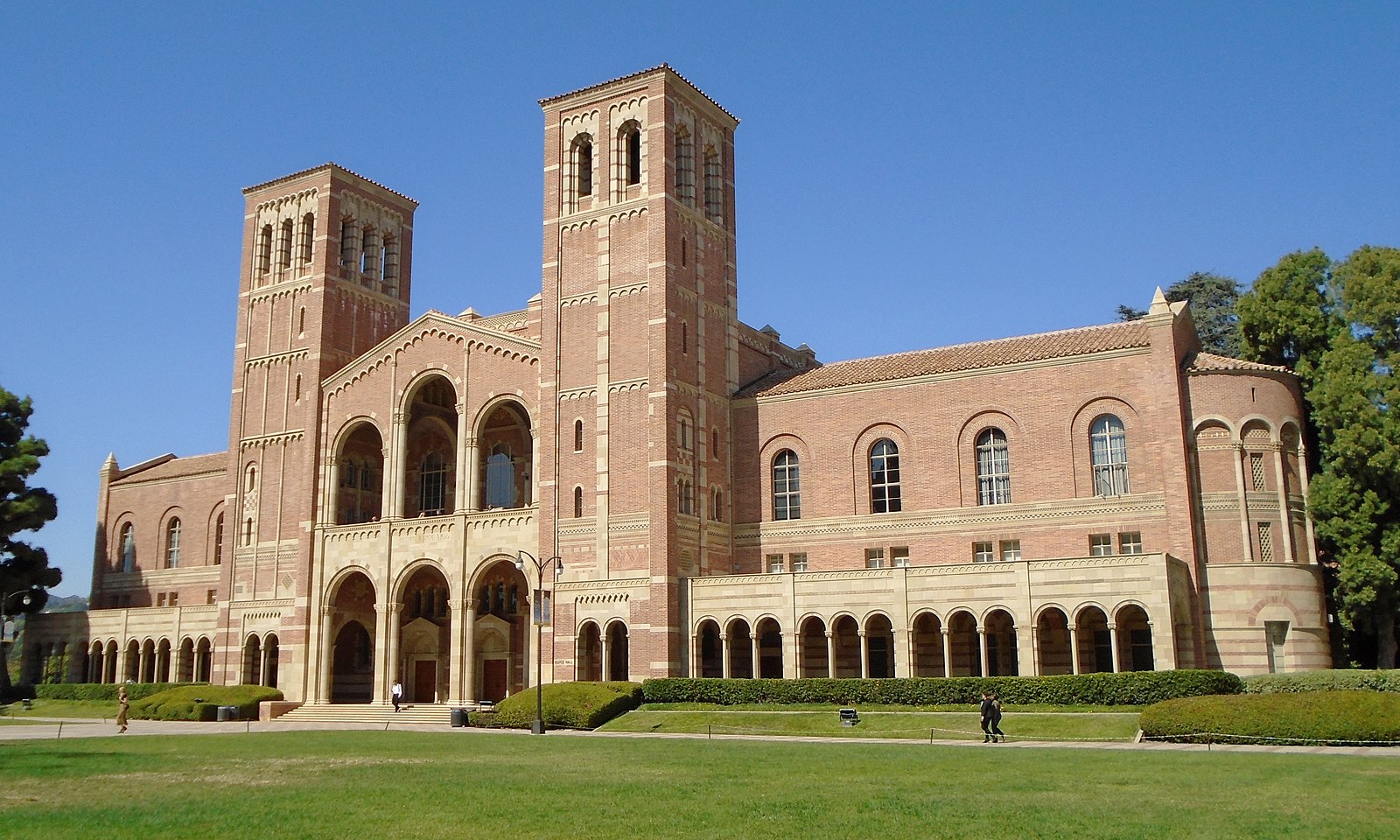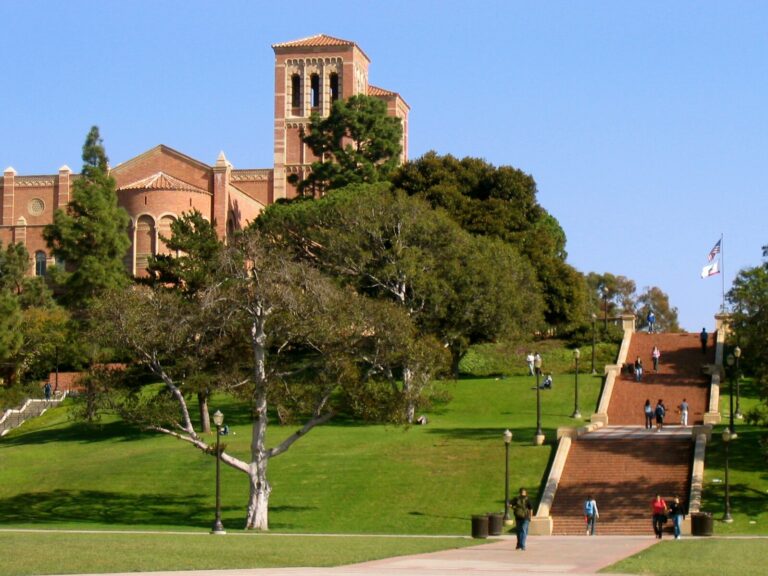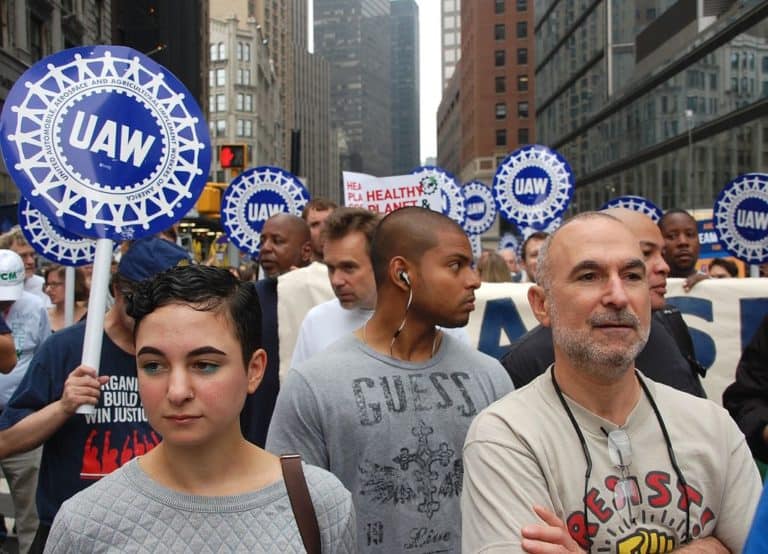
Noah Zatz is Professor of Law at the University of California, Los Angeles.
This is part two of a two-part series. See part one here.
This post analyzes a second fatal flaw in the recent temporary restraining order (TRO) issued at the University of California’s (UC’s) urging against UAW Local 4811’s unfair labor practice (ULP) strike. The first (discussed previously) concerned how the trial court usurped the Public Employment Relations Board’s (PERB’s) exclusive jurisdiction over ULP determinations; that problem was particularly acute because the UC already had petitioned PERB to pursue injunctive relief and been rebuffed—twice. But worse yet, the court’s rush to enjoin the strike also flouted a separate statute specifically designed to restrain the age-old problem of judicial repression of labor activism at employer behest, what California law elsewhere labels “the evils which frequently occur when courts interfere with the normal processes of dispute resolution between employers and recognized employee organizations.”
In 2000, California enacted its Little Norris-LaGuardia Act modeled on its federal namesake. The new law complemented a related prior state provision. It drew on but also modified the earlier provision’s definition of a “labor dispute” in a manner calculated to apply to disputes over public sector collective bargaining agreements (CBAs), unlike the earlier law.
Tracking the federal law, California’s anti-injunction act erected new procedural barriers to judicially-issued injunctive relief, including TROs, relating to labor disputes. These requirements include specific judicial factual and legal findings on the record, none of which occurred here, and several species of exhaustion requirements that UC would have been hard pressed to satisfy precisely because it was bypassing the PERB process. Indeed, the UC’s brief baldly failed even to acknowledge the Little Norris-LaGuardia Act’s existence, let alone to argue that it did not apply or could have been satisfied.
The anti-injunction act’s applicability apparently was debated at the TRO hearing after the UAW highlighted it in its brief. A full transcript is unavailable, and the court issued no written opinion, but news reports suggest the judge may have sidestepped the act based on a gross legal error. According to these reports, the court expressed doubts that the controversy before it qualified as a “labor dispute” at all.
The idea is preposterous that no labor dispute is involved in an effort to quash a labor union’s strike on the ground that it violated a collective bargaining agreement executed pursuant to California labor law. The most plausible explanation is that the court confused the relevant concept of “labor dispute” for anti-injunction act purposes with a separate contested question regarding the validity of the UAW’s charges of pre-strike ULPs by the UC.
On the ULP front, the UC argued that UAW members’ earlier concerted activity in connection with the Palestine Solidarity Encampments was unprotected, and therefore the UC could repress it without committing any ULP. The activity supposedly lacked protection because it was “political” in nature, disconnected from workplace matters.
Be that as it may, the anti-injunction act question was different: whether, once the UAW struck over the alleged ULPs and the UC invoked the CBA’s no-strike clause to quash it, there was “any controversy concerning terms or conditions of employment.” The answer is an easy yes because a contractual duty not to strike is a quintessential “term or condition of employment,” as reflected in the UC’s own explicit threats to take disciplinary action against UAW members participating in what it insisted was a strike forbidden by the CBA. Indeed, under the federal Norris-LaGuardia Act’s essentially identical definitions, the U.S. Supreme Court has held that an employer’s invocation of a no-strike clause against even a purely “political” strike is a “labor dispute” subject to the Act.
That ruling came in one of the early 1980s Soviet Boycott cases, touchstones for “political strike” doctrine, where the Court applied the Act to bar a no-strike injunction. In doing so, Jacksonville Bulk Terminals reaffirmed the limits of so-called Boys Markets injunctions. Boys Markets had carved out a controversial, nontextual exception to the 1932 federal anti-injunction act based on the policies underlying the subsequently enacted National Labor Relations Act (NLRA) and Labor-Management Relations Act (LMRA) § 301. This exception allows a federal court exercising Section 301 jurisdiction to enjoin a strike over a contract dispute for the purpose of forcing dispute resolution into a CBA-mandated arbitration process. Subsequently, however, in Buffalo Forge, the Court refused to apply this exception to a case involving a sympathy strike, where the union struck over something other than the employer’s alleged contractual violation. Jacksonville Bulk Terminals then applied this principle to a “political” strike, even where some of the union’s complaints might have been recast in contractual terms.
These cases thus undermine the UC’s seemingly best argument: that even in a bona fide labor dispute, a Boys Markets analysis enables a state court to bypass the anti-injunction act to enforce a CBA no-strike clause, here under California Labor Code § 1126, LMRA Section 301’s rough analogue discussed in the prior post. Oddly, the UC didn’t actually make this argument, and the analogy is imperfect because California’s Little Norris-LaGuardia Act was enacted after the 1941 Section 1126. Moreover, the UC did not seek an order compelling arbitration of the UAW’s underlying grievances, a prerequisite to a Boys Markets no-strike injunction.
But even if those wrinkles could be ironed out, the fundamental problem is that this case appears more like Buffalo Forge and Jacksonville Bulk Terminals than Boys Markets. The dispute precipitating the strike concerns alleged ULPs, not contractual violations, and PERB has found those ULP charges to merit issuing a complaint. Surprisingly little precedent addresses whether the Buffalo Forge rationale applies to a ULP strike, but the NLRA case most directly on point concludes that it does. Just last year, Spreckels Sugar Co. v. UFCW Local 135 reasoned that because ULP merits “cannot be resolved by the Court,” and thus neither can “whether the work stoppage violates the no-strike provision of the CBA, the Boys Markets exception does not apply.” This rationale applies with special force here because California law is even more protective of PERB’s ULP jurisdiction.
Furthermore, the UC does not even portray this as a surreptitious economic strike under cover of ULP charges. Instead, the UC’s theory is that the UAW is conducting a “political” strike over matters outside the collective bargaining relationship: “The individuals involved in the protest activity on campus were not . . . protesting the terms and conditions of their employment. As far as the University was aware, encampment protesters were students advocating for political change in the Middle East.” This argument could be fatal to the UAW’s ULP strike theory, but that would simply take the UC out of the Mastro Plastics frying pan and into the Jacksonville Bulk Terminals fire. Either way, no Boys Markets injunction is available.
All told, this episode illustrates the very dangers meant to be forestalled by administrative jurisdiction over ULPs and limits on labor injunctions. These limits are not self-enforcing, especially when delicate strike timing (here, the crucial period of final grading) means that even later reversal of an egregiously wrong injunction cannot undo its damage. This suggests the need for even sharper limits on trial court intervention and for mechanisms that make employers like the UC pay a hefty price if they successfully importune a court to go rogue nonetheless.










Daily News & Commentary
Start your day with our roundup of the latest labor developments. See all
January 15
New investigation into the Secretary of Labor; New Jersey bill to protect child content creators; NIOSH reinstates hundreds of employees.
January 14
The Supreme Court will not review its opt-in test in ADEA cases in an age discrimination and federal wage law violation case; the Fifth Circuit rules that a jury will determine whether Enterprise Products unfairly terminated a Black truck driver; and an employee at Berry Global Inc. will receive a trial after being fired for requesting medical leave for a disability-related injury.
January 13
15,000 New York City nurses go on strike; First Circuit rules against ferry employees challenging a COVID-19 vaccine mandate; New York lawmakers propose amendments to Trapped at Work Act.
January 12
Changes to EEOC voting procedures; workers tell SCOTUS to pass on collective action cases; Mamdani's plans for NYC wages.
January 11
Colorado unions revive push for pro-organizing bill, December’s jobs report shows an economic slowdown, and the NLRB begins handing down new decisions
January 9
TPS cancellation litigation updates; NFL appeals Second Circuit decision to SCOTUS; EEOC wins retaliation claim; Mamdani taps seasoned worker advocates to join him.